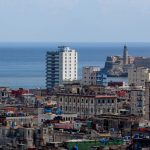The National Bank for Economic and Social Development (BNDES) presented today (14) the financial results for 2022. The recurring net income was R$ 12.5 billion. The value considers the net accounting profit of R$ 41.7 billion, less extraordinary elements. Among them, the bank highlights Petrobras’ dividend income, amounts owed by the operator Oi and the sale of JBS and Eletrobras shares. The result represents growth of 46.2% compared to 2021.
Disbursements, which include loans and credit offers, amounted to BRL 98 billion in 2022, which is equivalent to 1% of GDP. In a broader comparison, the BNDES transferred, from 2015 to 2022, BRL 873 million to the National Treasury, while disbursements were BRL 646 billion.
“Distorted function”
This difference in values was criticized by Aloizio Mercadante, president of the bank. For him, the institution’s historical social function was distorted during these years and the plan now is to double the size of the institution by 2026. This means increasing the value of disbursements from 1% to 2% of GDP.
“That is not the role of a development bank. It is not financing the Treasury in this proportion, in this scale, in this speed. All anticipations occurred before the bank’s investments yielded the expected return. These mechanisms that are there need to be revisited and revised”, said Mercadante.
According to him, one of the mechanisms to be reviewed is the payment of dividends, the profit obtained from shares. He criticized the fact that the BNDES started to collect 60% of the dividends instead of using that money for investment, financing works and projects.
“The main development banks in the world do not pay dividends to their national states. We didn’t collect, then we went to 25%, now they are 60% of our result. What is the problem? That this is the bank’s own capital, what the institution’s work has done and that should return to the economy as credit, financing, job and income generation, which is the fundamental role of the BNDES”.

















